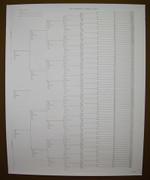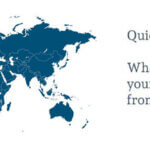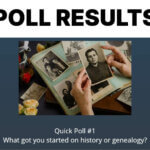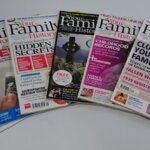|
It’s holiday time, which is the perfect time to get started on your family history. Whether you’re just starting out, or if you’ve researched for a while, but are beginning your search in a new country, we have guides that can help you learn how to go about it.
|
|
|
|
Getting Restarted Genealogy is a stop-start hobby that lasts years. So if you are one who is just re-starting or picking it up again, you might consider the “Do-over Book” which takes you step-by-step through reanalysing everything you have, while getting it all into an organized form.
|
|
|
| Getting Organised There’s no doubt that doing genealogy you need to be organised. The amount of paper, photos, documents, even emails, you will get relating to your research is huge. And there’s no point having information if you can’t find it, so you need to get organised. There are numerous books relating to organsing.Apart from physical organisation of genealogy files, photo filing and heirloom documenting are both an important part of genealogy organisation. But don’t forget about your old slides, home movies and audio tapes – these are important and irreplaceable records. For some, writing is a way to get their research into order. No matter what aspect you’d like to focus on and learn how to improve … there’s a guide for it.More getting organised: |
|
|
|
Getting Started A5 Four Generation Pedigree Note Pad – Stationery, 50 sheets – $5.95 9 Generation Chart – Stationery – $2.20 500 Best Genealogy and Family History Tips – T. MacEntee, paperback, 72 pages – $19.50 The Basic Genealogy Checklist: 101 Tips and Tactics to Find Your Family History – H. Christmas & P. Rhetts, paperback, 128 pages – $35.00
|
|
Ancestor Family Tree Work Book – Anne Trubshaw-Dow & Lynn Dillon, paperback, 48 pages – $15.00 Genealogical Research Work Book – Anne Trubshaw-Dow & Lynn Dillon, paperback, 48 pages – $10.00 Genealogy Basics in 30 Minutes -S. Combs-Bennett, paperback, 106 pages – $32.00 Granny Was a Brothel Keeper: 50 Family History Traps – K. Broad & T. Beobard, paperback, 136 pages – $26.00
|
|
Grandad Did a Dastardly Deed: 50 More Family History Traps – K. Broad & T. Neobard, paperback, 132 pages – $28.50 It’s Not All Online: A Guide to Genealogy Sources Offline – S. Hicks, paperback, 68 pages – $14.00 My Family History Note Book – spiral, 88 pages – $14.50 Pitfalls in Family History – G. Jaunay, paperback, 36 pages – $12.50
|
|
To Trace or Not to Trace: A Family History Overview for the Curious – C. Baxter, paperback, 68 pages – $15.00 A Beginner’s Guide to British and Irish Genealogy – C. Paton, paperback, 72 pages – $16.00 Family and Local History Resource Directory for Victoria – S. Hicks, paperback, 130 pages – $28.50 Family History Research in South Australia – G. Jaunay, paperback, 100 pages – $28.00
|
|
Finding Your Italian Ancestors: A Beginner’s Guide – S. Adams, paperback, 206 pages – $29.50 Introduction to German Family History Research for Australians – E. Kopittke, paperback, 68 pages – $15.00 Tracing Your Family History: How to Get Started – K. Chater, paperback, 96 pages – $18.95 Where Do I Start?: A Brief Guide to Researching Your Family in Australia and New Zealand – S. Hicks, paperback, 72 pages – $19.00
|
|
Getting Restarted The Genealogy Do-over Workbook – T. MacEntee, paperback, 72 pages – $15.00
|
|
Getting Organised Lets Get Organized!: A Practical Guide For All Aspects of Family History Research – P. Christensen, paperback, 252 pages – $49.50 Organize Your Genealogy: Strategies and Solutions for Every Researcher – D. Smith, paperback, 240 pages – $44.95 Organizing the Mountains of Paper – L. St Denis, paperback, 108 pages + 19 charts – $17.00 Preserving Your Family’s Oral History and Stories – T. MacEntee, paperback, 36 pages – $14.00
|
|
How to Archive Family Keepsakes: Learn How to Preserve Family Photos, Memorabilia and Genealogy Records – D. Levenick, paperback, 208 pages – $42.95 How to Archive Family Photos: A Step-by-Step Guide to Organize and Share Your Photos Digitally – D. Levenick, paperback, 240 pages – $44.95 Digital Imaging Essentials: Techniques and tips for Genealogists and Family Historians – Australian edition – G. Rasmussen, paperback, 152 pages – $34.95 Your Family History Archives: A Brief Introduction – S. Hicks, paperback, 40 pages – $9.50
|





































